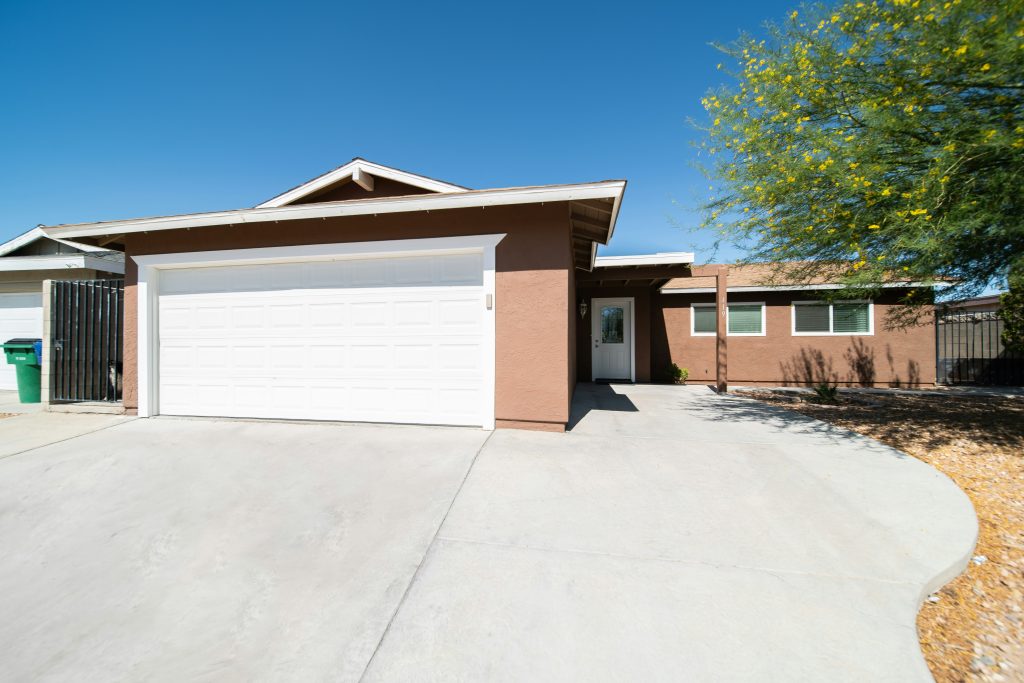Asphalt vs. Concrete vs. Pavers: Which Driveway Lasts Longer (and Costs Less Over Time)?

Introduction
Did you know that the average lifespan of a driveway can vary dramatically depending on the material used? Asphalt driveways typically last 15-20 years, while concrete can endure for 30-40 years, and paver driveways can last anywhere from 25 to 50 years. Choosing the right driveway material is crucial not only for durability but also for long-term costs and curb appeal. In this blog post, we will compare asphalt, concrete, and paver driveways, focusing on their durability, maintenance needs, repair costs, and aesthetic value.
Section 1: Overview of Driveway Materials
1.1 Asphalt Driveways
Asphalt driveways are made from a mixture of aggregates and bitumen, making them a popular choice for homeowners due to their cost-effectiveness and quick installation.
-
Durability: Asphalt driveways typically last 15-20 years, but their lifespan can be affected by climate and usage. In hotter climates, asphalt may soften and deform, leading to cracks.
-
Maintenance Needs: Regular maintenance tasks include sealcoating every 3-5 years and filling cracks to prevent further damage.
1.2 Concrete Driveways
Concrete driveways consist of a mixture of cement, water, and aggregates, known for their strength and longevity.
-
Durability: Concrete driveways can last 30-40 years, but they are susceptible to cracking, especially in freeze-thaw cycles.
-
Maintenance Needs: Maintenance involves occasional cleaning and sealing every 5-10 years to protect against stains and cracking.
1.3 Paver Driveways
Paver driveways are made from individual stones or bricks, such as brick, stone, or concrete, offering a customizable and durable option.
-
Durability: Paver driveways can last 25-50 years and are resistant to cracking, making them a long-lasting choice.
-
Maintenance Needs: Maintenance tasks include weed control and replenishing joint sand, but they generally require less upkeep than asphalt.
Section 2: Cost Analysis Over Time
2.1 Initial Installation Costs
| Material | Cost per Square Foot |
| Asphalt | $3 - $7 |
| Concrete | $5 - $10 |
| Pavers | $10 - $20 |
Factors influencing costs include regional price variations, labor costs, and material quality. Asphalt is typically the most affordable option, while pavers are the most expensive due to their installation complexity.
2.2 Long-Term Costs
-
Maintenance Costs:
-
Asphalt: $0.10 - $0.25 per square foot annually.
-
Concrete: $0.05 - $0.15 per square foot annually.
-
Pavers: $0.10 - $0.20 per square foot annually.
-
-
Repair Costs: Asphalt may require significant repairs after 15-20 years, while concrete and pavers generally have lower repair needs due to their durability.
-
Total Cost of Ownership: Over 30 years, asphalt may incur higher costs due to its shorter lifespan and maintenance needs, while concrete and pavers offer better long-term value.
Section 3: Durability and Longevity
3.1 Performance Under Different Conditions
-
Weather Resistance: Asphalt can soften in extreme heat and crack in cold weather. Concrete performs well in cold climates but may crack if not properly installed. Pavers are versatile and can handle various weather conditions without significant issues.
-
Load Bearing Capacity: All three materials can support heavy vehicles, but pavers offer the best resistance to shifting and cracking under heavy loads.
3.2 Repair and Replacement
-
Ease of Repair: Asphalt repairs are straightforward but may require resurfacing. Concrete repairs can be more complex, while pavers allow for individual stone replacement, making them easier to maintain.
-
Replacement Considerations: Asphalt typically needs replacement after 15-20 years, concrete after 30 years, and pavers can last a lifetime with proper care.
Section 4: Curb Appeal and Aesthetic Value
4.1 Visual Appeal
-
Design Options: Asphalt has a uniform black appearance, while concrete can be stamped or stained for various designs. Pavers offer the most customization with different colors, shapes, and patterns.
-
Impact on Property Value: A well-maintained driveway can enhance curb appeal and potentially increase property value. Paver driveways, in particular, are known for their aesthetic appeal.
4.2 Neighborhood Trends
Market preferences vary by neighborhood, with concrete and pavers trending in areas where aesthetics and durability are prioritized. Asphalt remains popular for its cost-effectiveness in more budget-conscious regions.
Conclusion
In summary, when comparing asphalt, concrete, and paver driveways, each material has its unique advantages and drawbacks. Asphalt is budget-friendly but requires more maintenance and has a shorter lifespan. Concrete offers durability and low maintenance but comes with a higher initial cost. Pavers provide the best aesthetic options and longevity but require a larger upfront investment. Ultimately, the best choice depends on your specific needs, budget, and aesthetic preferences.

